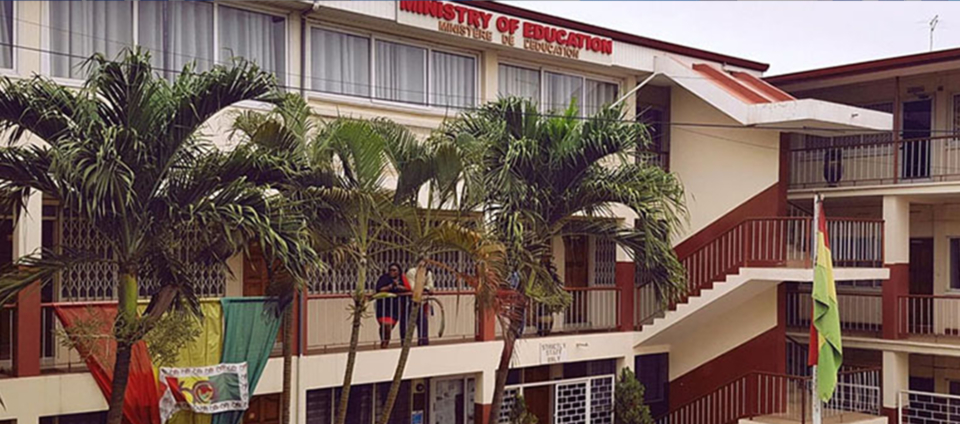The Ministry of Education says the Free Senior High School (FSHS) policy is a game-changer in the country’s educational system.
It said the introduction of the policy in 2017 had helped thousands of students who would have stayed home because they could not meet the cutoff point of aggregate 30, the required grade of entry into SHS set by the Ghana Education Service (GES).
This was in a statement signed by Mr. Felix Baidoo, the Press Secretary to the Minister of Education, to debunk some assertions made by Dr. Sampson Obed Appiah, a lecturer at the University of Ghana, who described the double-track system as the "most unfortunate policy" in the history of the country's educational system.
It further said the lecturer stated that the FSHS policy had led to a reduction in contact hours, reduction in the quality of education and an increase in financial burden on parents, among others.
The Ministry in response, said the FSHS policy was introduced to improve access to SHS for all Ghanaian students, adding, “as a result of the opportunity offered, the number of Ghanaian students desiring to acquire education increased.”
It said government introduced the Double Track’ system as a leapfrogging measure, to ensure all students that had passed the Basic Education and Certificate Examinations had access to quality education.
The statement said the government on countless occasions had announced that the double-track system was a leapfrogging approach that would be faced out as soon as most of the ongoing school's infrastructure projects were completed to absorb many students in schools across the country
“The President gave an assurance of it being phased out within 5 to 7 years,” it said.
Touching on the benefits of the FSHS, the statement said the introduction of the policy led to an increase in student enrollment, adding that 400,000 more students had gained admission to second cycle institutions across the country due to the policy.
It said the infrastructural challenges in schools had been with the nation for a long time and that it was not the introduction of FSHS nor the tracking system that brought about the infrastructural challenge as was being speculated by Dr Appiah.
It further stressed that the Ministry of Education had constructed over 962 facilities including dormitories, assembly halls, dining halls and classroom blocks across the country since the introduction of the policy, to help create the enabling environment for effective teaching and learning.
The Ministry said until the introduction of the FSHS programme, SHS's had a total of 1080 instructional hours per year but the introduction of the tracking system led to a review from six hours of instructional hours a day to seven hours leading to a cumulative 1134 hours for every academic year.
It stated that the 2020 WASSCE results showed a tremendous improvement in the average record as compared to the previous year's results, adding, “out of the 465 A1's recorded by WAEC; Ghana alone recorded 411 out of the figure indicating a huge success for the nation.”
Latest Stories
-
DAMC, Free Food Company, to distribute 10,000 packs of food to street kids
12 minutes -
Kwame Boafo Akuffo: Court ruling on re-collation flawed
31 minutes -
Samuel Yaw Adusei: The strategist behind NDC’s electoral security in Ashanti region
33 minutes -
I’m confident posterity will judge my performance well – Akufo-Addo
45 minutes -
Syria’s minorities seek security as country charts new future
1 hour -
Prof. Nana Aba Appiah Amfo re-appointed as Vice-Chancellor of the University of Ghana
2 hours -
German police probe market attack security and warnings
2 hours -
Grief and anger in Magdeburg after Christmas market attack
2 hours -
Baltasar Coin becomes first Ghanaian meme coin to hit DEX Screener at $100K market cap
2 hours -
EC blames re-collation of disputed results on widespread lawlessness by party supporters
3 hours -
Top 20 Ghanaian songs released in 2024
3 hours -
Beating Messi’s Inter Miami to MLS Cup feels amazing – Joseph Paintsil
3 hours -
NDC administration will reverse all ‘last-minute’ gov’t employee promotions – Asiedu Nketiah
3 hours -
Kudus sights ‘authority and kingship’ for elephant stool celebration
3 hours -
We’ll embrace cutting-edge technologies to address emerging healthcare needs – Prof. Antwi-Kusi
4 hours

